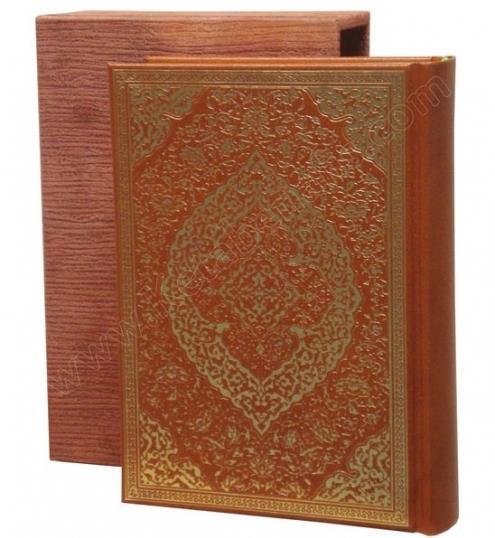Illuminated Quran Inscribed by Yaqoot Musta’sami Published in Qom

Jamal-eddin Yaqoot Mosta’sami, titled Qiblat-ol-Kitab, became famous because of his innovative handwriting particularly in writing Quranic manuscripts.
It is believed that he hand-wrote 364 full-versions of the Holy Quran at his life time. Seven of his pupils became great masters of their own time and that is why Yaqoot is called master of the seven masters.
A copy of the Holy Quran he inscribed in 690 A.H. is being kept at the Library of Egypt.
The copy of the Divine Book was due to be distributed among the eminent figures participating at the Plan of “Najaf; cultural capital of the world of Islam in 2012”.
The decision was made by Ahmad Masjed Jame’i, member of Tehran City Council and former minister of Islamic Culture and Guidance, ‘Isaa ‘Alizadeh, former managing director of the International Quran News Agency and Hojat-ol-Islam Nurollahian in a trip to the holy city of Najaf in June 2011.
The copies were due to be gifted to the guests of the plan by the custodianship of Imam Ali’s (AS) holy shrine, but the plan was canceled.
Hojat-ol-Islam Nurollahian said in this respect that “we are waiting for an important religious occasion as an opportunity to distribute the precious and valuable copy of the holy Quran among the eminent figures of the world of Islam.”
The Al-ul-Bayt (AS) Institute which is affiliated to the Office of Grand Ayatollah Sistani, Shia source of emulation in Iraq, was published in 1983 in the holy city of Qom in order to enrich the Islamic written works particularly the sources and references on Hadith, jurisprudence, Usul, Tafseer, Lughah and Rijal sciences, needed for the seminary schools.
Conducting researches and publishing books for seminaries are the main activities of the institute which also has branches in the holy city of Mashhad, Beirut and Damascus.
Besides making use of the rich library of the institute, researchers of the institute cooperate with more than 400 centers in over 60 countries.



